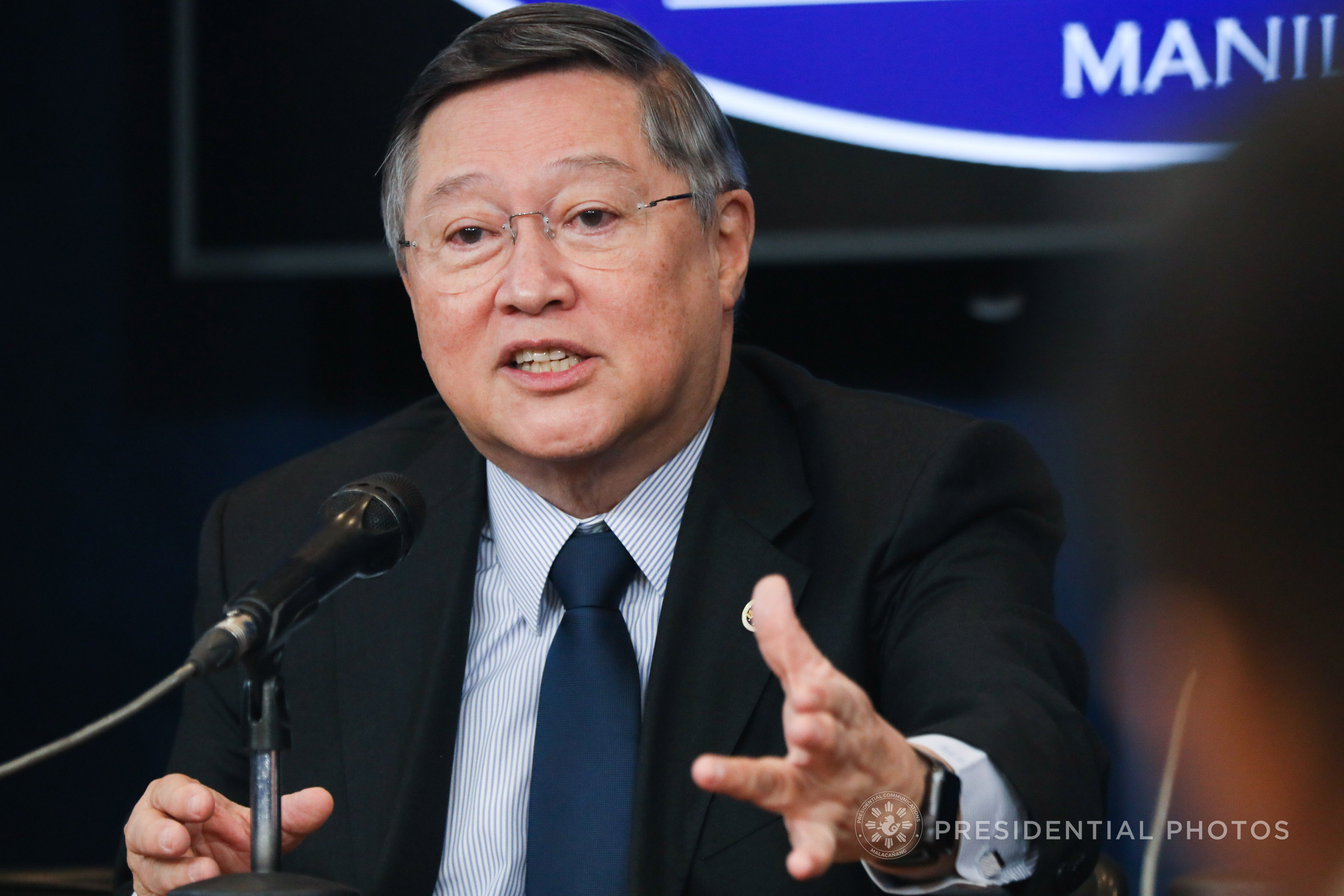
Finance Secretary Carlos Dominguez III. Malacañang file photo / TOTO LOZANO
In what has become an international financial market habit early in the new year, the Philippine government on Wednesday successfully borrowed $1.5 billion from foreign creditors by issuing a new batch of bonds which will mature in 10 years, the Department of Finance said.
In a press statement, Finance Secretary Carlos Dominguez III said the deal “further illustrates deepening investor confidence in the Philippines’ growth story and the Duterte administration’s ability to maintain fiscal discipline while spending big on infrastructure modernization, human capital development and social protection for the poor.”
The global bonds were priced at 110 basis points over equivalent US Treasury yields after an initial expectations of pricing at around 130 basis points over the benchmark. The bonds are expected to be rated Baa2 by Moody’s, BBB by Standard & Poor’s, and BBB by Fitch.
Capitalizing on the recent positive markets trading tone post the strong US employment data release on Friday, the government announced the issuance last Jan. 7.
Like in previous years, the issue marked the first emerging market sovereign US dollar bond sale for the year and “demonstrates the [government’s] ability to respond tactically to conducive market conditions to capture a favorable issuance window,” the Finance Department said.
By geographical allocation, 37 percent of the bonds were allocated to Asia, 28 percent to the U.S. and 35 percent to Europe. In terms of investor type, 52 percent went to asset managers, 22 percent went to banks, 14 percent went to sovereign wealth funds, pension funds, and insurance, and the remaining 12 percent went to private banks and other type of investors.
“We have garnered strong support from the global fixed income investor community despite recently heightened volatilities in the global markets,” National Treasurer Rosalia de Leon said. “This demonstrates strong conviction from the global investor community on the Republic’s economic fundamentals as well as the depth of the Republic’s investor outreach.”
Bank of China, J.P. Morgan, and Standard Chartered Bank acted as joint global coordinators for the transaction, while Citigroup, Credit Suisse, Goldman Sachs (Asia) L.L.C. and UBS acted as joint bookrunners for the transaction.
Proceeds of the borrowing will be used for general purposes, including budgetary support.
The fiscal deficit stood at P477.2 billion at end-November as the growth in government spending on public goods and services, especially infrastructure, outpaced revenue collections during the period.
The latest Bureau of the Treasury data showed the 11-month deficit was 96-percent wider than the P243.5 billion posted a year ago.
The fiscal deficit as of November accounted for 91 percent of the target P523.7 billion this year, a cap equivalent to 3 percent of gross domestic product.
The Duterte administration had programmed yearly budget deficit ceilings equivalent to 3 percent of GDP—except in 2019, which would be a higher 3.2 percent—as it wanted to ramp up government expenditures, particularly on infrastructure, in line with its massive “Build, Build, Build” program.
From January to November, disbursements reached P3.095 trillion, up 24 percent from P2.494 trillion last year. For the entire year, the government had programmed to spend P3.37 trillion. /jpv